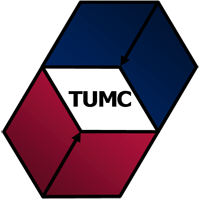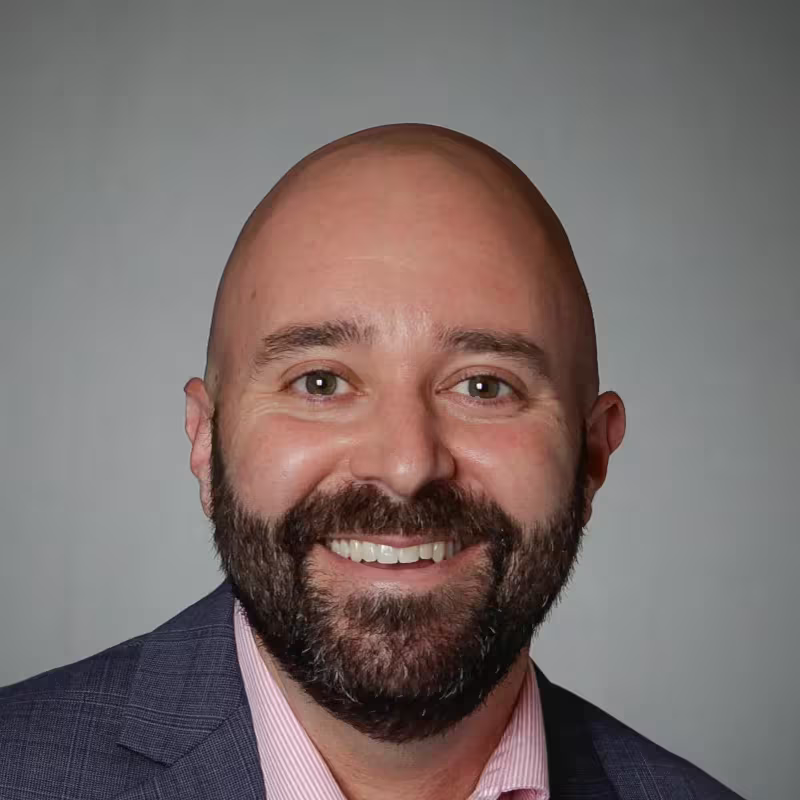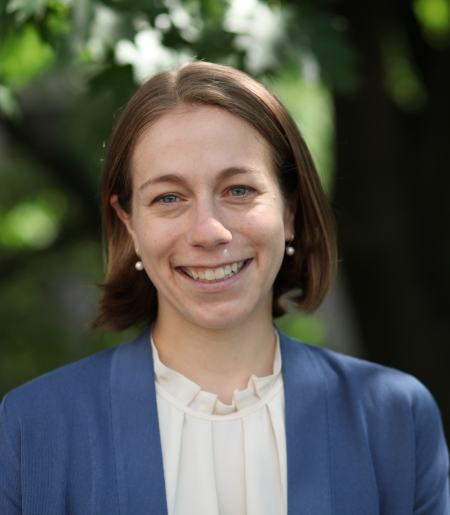

Nineteen times in the past, undergraduate students have gathered in Huntsville, Tyler, San Antonio, Beaumont, Austin, Nacogdoches and "the cloud" to talk about math, play games, and network with students and faculty from around the state of Texas. This year, we will return to San Antonio for the 20th anniversary of the TUMC!
Friday evening's events will be in the Blank Sheppard Innovation Center, which is #20 on the map. Conference participants can park anywhere on campus; we recommend parking at Lot D or V on Friday.
Most of Saturday's events will be in the Albert B. Alkek Business Building (Alkek), which is #31 on the map. Plenary talks will take place in the University Center (UC), which is #23 on the map, and lunch will be in the cafeteria in the UC.
Conference participants can park anywhere on campus; for Saturday’s events, we recommend Lots D or T. The campus does have some small hills, so conference participants with mobility issues may want to consider parking in Lot J, which is the closest parking lot to the UC and Alkek.
For wireless internet access, you can use eduroam or connect to the open guest wifi, StMU-Guest.
Our invited speakers are Dr. Brian Miceli from Trinity University and Dr. Kate Meyer from Carleton College.

Dr. Brian K. Miceli is a Professor of Mathematics at Trinity University in San Antonio, TX. He earned a BS in mathematics from Cal Poly State University in San Luis Obispo, and both an MS in applied mathematics and a PhD in mathematics from UC San Diego. Since arriving at Trinity in 2006, he has taught over 20 unique courses, covering mathematical topics from calculus to modern algebra, while also teaching first-year writing and discussion in courses titled Arts & Ideas, Science Fiction, and (currently) A Successful Life. His main area of research is enumerative methods in combinatorics, and he has also published papers on sports rankings and prediction methods. As an undergraduate he published multiple mathematics papers related to the California Condor Restoration Project, and as a faculty member he has published multiple articles with undergraduate co-authors and advised more than twenty-five senior projects. Most recently he has become interested in the interplay between math education and proof-based, upper-division mathematics courses.

Dr. Kate Meyer is an Assistant Professor of Mathematics at Carleton College. After completing a BA in Biology at Carleton and pivoting to mathematics through a year of post-baccalaureate study at Smith College, she earned a PhD in mathematics from the University of Minnesota. She works in the fields of dynamical systems and mathematical ecology, developing methods for modeling disturbance and resilience in systems, especially ecosystems. Her published work has appeared in journals such as the SIAM Journal on Applied Dynamical Systems, Nature Sustainability, The American Naturalist, and the Bulletin of Mathematical Biology. As an educator, Kate teaches courses ranging from Real Analysis to a first-year seminar on climate modeling. She co-directs the Mathematics and Climate Research Network and is currently collaborating on an edited collection of climate applications problems for undergraduate mathematics courses, to appear in the AMS/MAA Classroom Resource Materials Series.
Friday, October 17, 2025
| Time | Event | Location |
|---|---|---|
| 5:00 - 7:00 pm | Registration and Welcome | Blank Sheppard Innovation Center - Foyer |
| 6:00 - 8:00 pm | Pizza and Games | Blank Sheppard Innovation Center - Foyer |
Saturday, October 18, 2025
| Time | Event | Location |
|---|---|---|
| 8:00 - 9:00 am | Registration | Alkek Business Building - Foyer |
| 9:00 - 9:55 am | Contributed Presentations | Alkek Business Building - Rooms 101, 102, 103, 104, 105, and 108 |
| 10:10 - 10:20 am | Welcome | University Center - 2nd Floor - Mengler Conference Room |
| 10:20 - 11:20 am | Plenary Kate Meyer Carleton College |
University Center - 2nd Floor - Mengler Conference Room |
| 11:20 am - 12:30 pm | Lunch and Grad School Fair | University Center - Diamondback Cafe |
| 12:30 - 1:00 pm | Panel Discussions | Alkek Business Building - Rooms 101, 102, 103, and 108 |
| 1:05 - 1:35 pm | Panel Discussions | Alkek Business Building - Rooms 101, 102, 103, and 108 |
| 1:40 - 2:55 pm | Contributed Presentations | Alkek Business Building - Rooms 101, 102, 103, 104, 105, and 108 |
| 3:10 - 4:10 pm | Plenary Brian Miceli Trinity University |
University Center - 2nd Floor - Mengler Conference Room |
| 4:10 - 4:15 pm | Closing Remarks | University Center - 2nd Floor - Mengler Conference Room |
Dr. Kate Meyer, Carleton College
Flow, kick, and words that stick: a non-smooth path to modeling environmental disturbances
Abstract: Many systems experience periods of roughly continuous change punctuated by rapid disturbances. For example, fires transform plant communities, intravenous delivery spikes drug blood concentrations, and hurricanes batter coral reefs. Flow-kick models were developed to study the interplay between recovery dynamics and recurrent disturbances. They alternate between continuous flow phases governed by an ordinary differential equation and instantaneous "kicks." I will give an overview of the mathematical framework, share insights from flow-kick models in the context of Earth systems, and describe some current research directions. I will also share some kicks of inspiration from mentors and friends that have nudged me along my mathematical journey.
Dr. Brian K. Miceli, Trinity University
The Combinatorics of Triangular Sequences
Abstract: Pascal's triangle, which dates back to long before the time of Pascal, is a well-studied object in modern combinatorics. We will talk a little about the sequence that generates Pascal's triangle, and then talk about the combinatorics of a quasi-related, but much newer, triangular sequence. We will end with some possible generalizations of this sequence and an open question.
Each panel session will run twice – once from 12:30-1:00pm and then from 1:05-1:35pm, so that participants can attend multiple panels.
abstracts for contributed talks (both sessions)
abstracts for contributed talks (both sessions)
The student registration fee is $10. Faculty registration is $50. Information about payment options is included in the registration form.
Students may submit an abstract for a 15-minute contributed talk. Priority for contributed talk slots will be given to students presenting original research. Based on the availability of contributed talk slots, abstracts for high-quality expository talks may be accepted as well. All students interested in math are welcome to register for and attend TUMC, regardless of whether they are presenting. There are also a limited number of 15-minute contributed talk slots available for presentations by faculty.
Deadlines:
We will have a graduate school fair on Saturday. Faculty who wish to sign up for a table at the grad school fair may do so when filling out their conference registration form. There is no fee for having a table at the grad school fair.
On Friday evening, the events include a pizza party and math games from 6:30 PM until 8:30 PM. On Saturday, we will have two plenary talks, contributed students talks, the grad school fair, and panel discussions on topics relevant to undergraduate research in mathematics.
Undergraduate students who register by September 24th will have the option for TUMC to make and pay for hotel accommodations for the night of October 17th at the Hampton Inn & Suites Market Square. Students will be grouped by institutions and a hotel list will be sent out about a week after registration closes.
Undergraduate students who register after September 24 but before October 10 will be responsible for arranging their own lodging.
Hampton Inn & Suites Market Square
411 South Flores Street, San Antonio, TX 78204, USA
(210) 212-7000
The conference will cover student parking; non-student parking is available for $10.
Faculty rooms may be available at market rates.
Fairfield Inn & Suites San Antonio Market Square
620 S. Santa Rosa Ave., San Antonio, TX 78204, USA
(210) 299-1000
Parking is free. If faculty are bringing students and staying at the Fairfield, we recommend planning to use the parking at this hotel
Faculty rooms are available for $114 plus taxes (make reservations here).